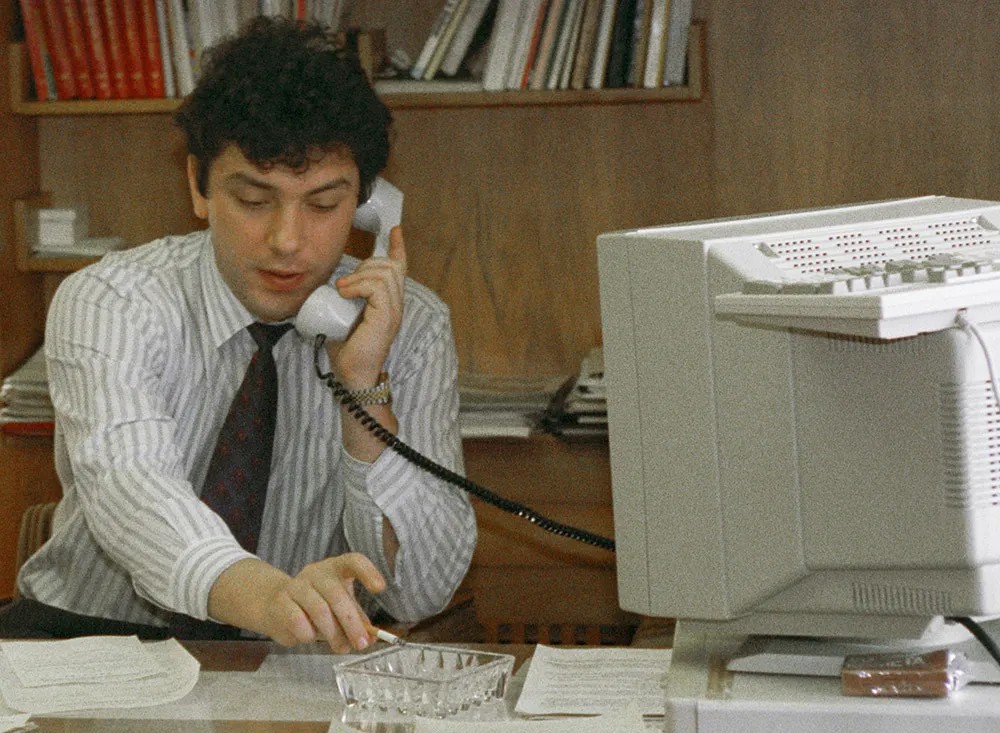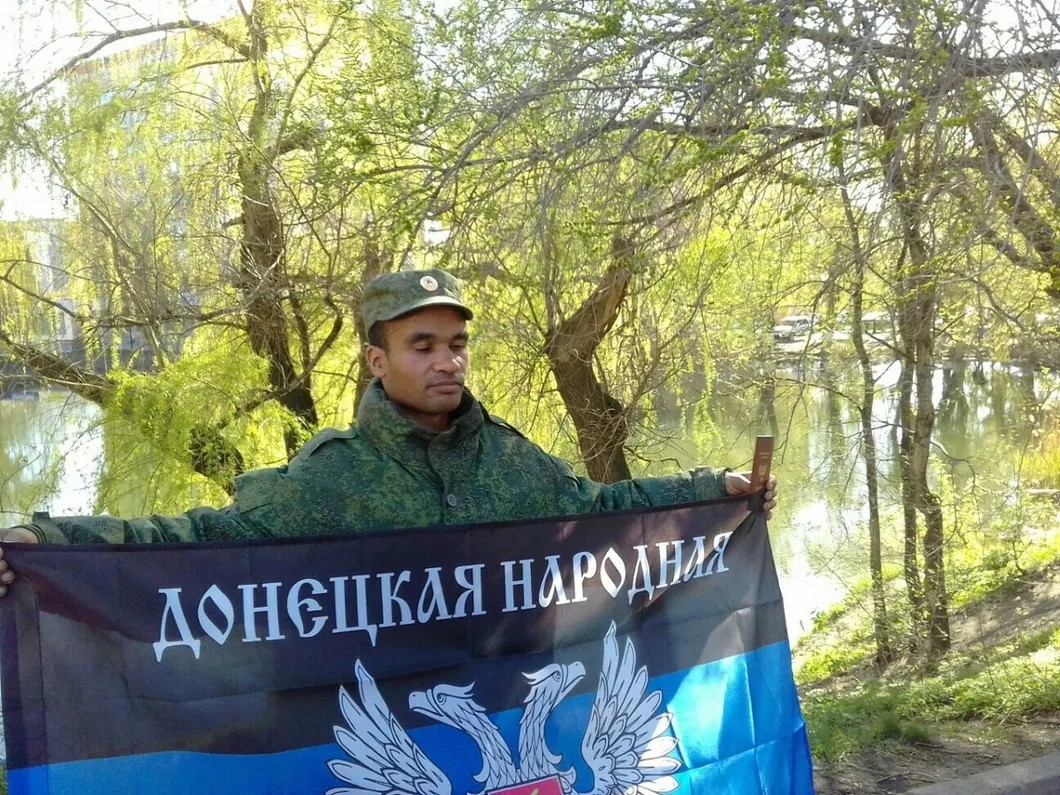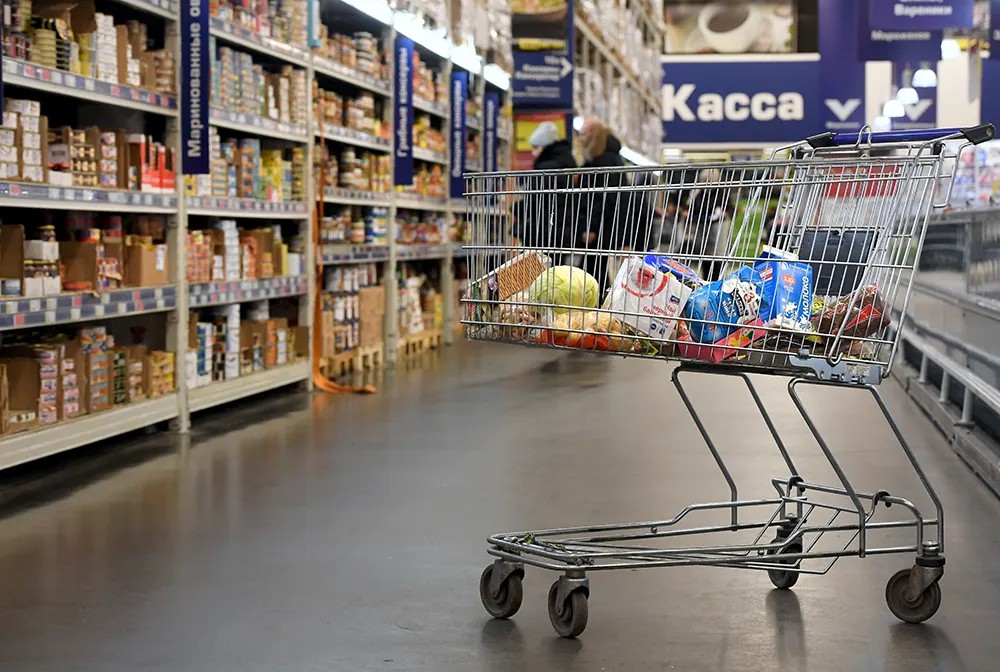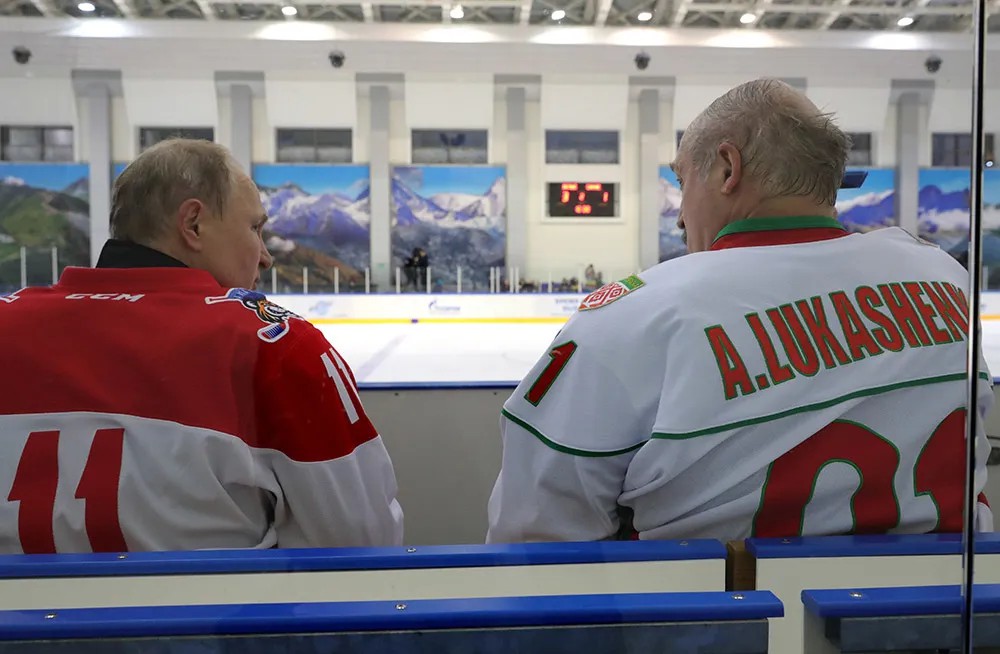
This Week’s Highlights
Russia marks five years since the murder of opposition leader Boris Nemtsov without justice being served; a mercenary known as “Black Lenin,” who’s fighting for the Russian annexation of Eastern Ukraine, turns up at ground zero of Russia’s environmental movement; we analyze Russia’s growing poverty problem; plus — the Kremlin’s collapsing plan to pressure neighboring Belarus into “integration.”
Want to get the full story? Click the links below for full-length articles in Russian.
New feature! Russia, Explained Audio Briefing. Also available on Apple Podcasts and Google Podcasts!
Five Years Without Boris Nemtsov
February 27 will mark the fifth anniversary of the murder of Russian opposition leader Boris Nemtsov. He was gunned down near the Kremlin in 2015. Although the direct perpetrators were jailed in 2017, the official investigation never established who ordered and organized the assassination.
Government cover-up continues.On February 20, the Organization for Security and Cooperation in Europe (OSCE) released a report calling for a “new and full investigation” into Nemtsov’s murder. The Russian authorities reportedly refused to cooperate with the OSCE on the report and the Foreign Ministry even denied the organization access to the case files under the pretense that they contained “state secrets.” The report covers the most detailed international legal documents on the murder case to date. In addition to analyzing the development of the official investigation in Russia, it also accuses the Russian authorities of covering up the motives, organizers, and requisitioners behind the crime.
Deny, deny, deny. Russia’s justice system doesn’t qualify Nemtsov’s murder as a political assassination and the Russian Security Service (FSB) has refused to release video recordings from the Moscow bridge where Nemtsov was shot. What’s more, the investigators don’t want to question a number of Russian officials who could be implicated in the case. This includes figures like the head of Russia’s southern region of Chechnya, Ramzan Kadyrov, his associate and relative Adam Delimkhanov and director of the Russian National Guard, Viktor Zolotov.
“Researchers and experts […] point to the potential participation of the leadership of Chechnya and the security services [in organizing the murder of Boris Nemtsov] and even suggest that the Russian president could have ordered it,” the OSCE report concludes.
Remembering Nemtsov – and many others.Moscow is set to hold a memorial march for Boris Nemtsov on February 29. He is being remembered in other parts of the world, as well. Last Thursday, Prague officially renamed the square near the Russian Embassy “Boris Nemtsov Square.” The Czech capital also renamed a nearby street after our journalist Anna Politkovskaya, who was murdered in 2006. Novaya Gazeta would also like to remind you that there are many other high-profile killings targeting Russian opposition leaders, journalists, and activists that have never been fully investigated.
Read more about the OSCE’s report on the Nemtsov murder cases here.
Meet “Black Lenin”
Plenty of sketchy foreign fighters have appeared as Russian-backed mercenaries in the war in Eastern Ukraine. But Beness Aijo truly stands out. After spending years on the Donbas war frontlines, this internationally wanted Latvian extremist made a surprise appearance at the Shiyes station, ground zero of the Russian environmental uprising.
An uninvited guest.Nicknamed “Black Lenin” because of his radical left extremism and African heritage, Aijo claims he has been “inspired” and feels “solidarity” with the Russian eco-activists in Shiyes. But none of them are excited about this controversial endorsement. The protesters told Novaya Gazeta that they never invited him to their camp.
Discrediting the environmental movement.The anti-landfill activists are convinced that Aijo’s appearance in Shiyes was meant to undermine their protests, which have been going on for over a year and a half with widespread public support. A similar incident took place in the fall of 2019 when far-right nationalists crashed their camp. The landfill’s investor allegedly brought in the rightwing demonstrators to sabotage the encampment.

Ignoring Interpol.Latvia has an Interpol arrest warrant out for Aijo, who has four pending criminal charges and was previously convicted for attempting to overthrow the Latvian government. Upon arriving in Russia earlier this month, he was briefly detained, until State Duma Deputy Sergei Shargunov (a former “commissioner” in eastern Ukraine’s self-proclaimed “Donetsk People’s Republic”) and left-wing writer Zakhar Prilepin stepped in and secured his release.
Wait for the irony. The fact that Aijo claiming solidarity with the environmental movement in Shiyes seems like a joke is not lost on the activists there. Especially since one of their own – Andrei Khristoforov – has fled to Ukraine to seek political asylum. Meanwhile, Aijo is now planning to seek political refuge in Russia – where he has previously threatened to lead a revolution unless the Kremlin annexes eastern Ukraine. Want to guess who will be granted political asylum first?
Поддержите
нашу работу!
Нажимая кнопку «Стать соучастником»,
я принимаю условия и подтверждаю свое гражданство РФ
Если у вас есть вопросы, пишите [email protected] или звоните:
+7 (929) 612-03-68
Read more about Beness Aijo’s inexplicable appearance in Shiyes here.
Enduring Poverty in Russia, Explained
President Vladimir Putin has long been promising to increase social spending, but little has changed for the 21 million Russians still living below the poverty line. Putin came face to face with this reality during a meeting with the public last week, when he was forced to concede that living on just 10,800 roubles (about $165) – the state-defined “monthly income minimum” – is “very difficult.” A video of the exchange went viral.

“You can’t deceive the economy.”When you break down the cost of living in Russia’s urban communities (where 74% of Russians live), the government’s “monthly minimum” doesn’t measure up. “For a big city it looks like this,” explains economist Dmitry Prokofiev. “$150 per month for groceries from a cheap supermarket, another $150 for commuting to work, work lunches – another $75, a communal apartment with electricity and internet – you can’t manage with less than $150 (that’s if you aren’t renting, otherwise it’s more).” In other words, even about 35,000 roubles per month ($540) is just enough to get by.
“For a half-decent life you need 650 to 750 dollars minimum,” Prokofiev says. “You can’t deceive the economy.”
And inequality keeps growing.But despite the socio-economic ills that poverty brings, no political force in Russia is aiming to build its program on eradicating it. As Prokofiev points out, incomes were on the rise in Russia until 2011, but then they plateaued and fell. At the same time, the authorities’ wealth grew exponentially. This created vast income inequality in Russian society, with no middle ground. So while Russia’s wealthiest live according to the standards of people in Europe (and sometimes even better), its poorest citizens live as though they are in a low-income country.
Read Dmitry Prokofiev’s full take on poverty in Russia here.
Russia’s Oil Standoff with Neighboring Belarus, Explained
In another sign of disintegrating relations between Putin and Belarusian President Alyaksandr Lukashenka – who was once his closest foreign ally – Russia and Belarus are continuing their bizarre tiff over oil supplies. Both sides have had a lot to say about the negotiations in the last week, but they’ve mostly created more confusion. Russia cut off most of its oil supplies to Belarus at the beginning of the year, following demands from Minsk for lower prices. Russia’s co-dependent neighbor has been energy-starved ever since.
He said, he said.So far the two parties have been telling very different stories. After a meeting between Putin and Lukashenka on 7 February (in which Moscow refused to budge) both sides announced that Russia would be selling oil to Belarus at higher, “global prices.” The Belarusian government tried to spin the outcome as a “victory,” pretending this was exactly what they wanted in the first place. Then, on February 14, Lukashenka said that Moscow was hinting at equal energy prices for Belarus if the country agreed to unification with Russia. Meanwhile, despite Minsk seeking oil supplies from other countries, Putin expressed doubts that Belarus will buy oil from anyone other than Russia.

Russian oil or bust.On February 20 journalists from nearby Lithuania reported that two tankers of oil for Belarus were expected to arrive at one of the country’s ports. Belarusian state oil company, Belneftkhim, then admitted that this was actually Russian oil purchased from traders. The next day, Lukashenka proclaimed that a “path towards resolving the dispute had emerged” and that Putin had called with an unexpected offer of $300 million worth of compensation for Belarus. The Kremlin quickly denied this claim. The situation was never clarified, leaving everyone more confused than before.
Silver lining.That being said, there is some good coming out of this mess: economic commentators think that the switch to higher prices for Russian crude will finally push the authorities in Belarus – who are not only authoritarian but also economically dependant on Moscow – towards healthy economic reforms.
Get the rundown on Minsk and Moscow’s ongoing oil dispute here.
Other Top-Stories Russia Has Been Reading
- A grandiose “anti-Russian” scandal in Italybecame our most-read story this week. On February 22, Italian law enforcement raided the hotel room of a group of Russian athletes at 6 a.m. – just hours before they were set to compete in the biathlon world championships. Comments on social media from popular Russian sports commentator, Dmitry Guberniev, apparently motivated the raid – in addition to Russia’s bad reputation for doping in international sports. Russia’s biathlon team captain, Alexander Loginov has been banned for doping in the past. And while his team took fourth in the biathlon overall, Loginov is apparently too nervous to compete in the next race.
Thanks for reading! To keep up with Novaya Gazeta’s reporting throughout the week, you can follow us on Facebook, Twitter, Instagram and Telegram. Our video content is available on Youtube and don’t forget to visit our website for the latest stories in Russian. Until next time!
— The Novaya Gazeta Newsletter Team
Поддержите
нашу работу!
Нажимая кнопку «Стать соучастником»,
я принимаю условия и подтверждаю свое гражданство РФ
Если у вас есть вопросы, пишите [email protected] или звоните:
+7 (929) 612-03-68